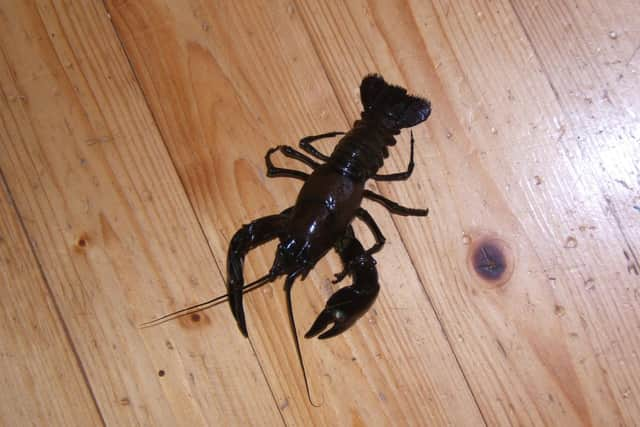Hucknall Probus members told of a 'miniature Jaws' now living in places like Moor Pond Woods
and live on Freeview channel 276
Dr Stephen Walker, who gave a talk to fellow members of the club, said the American signal crayfish was introduced into the UK more than 30 years ago with the aim of diversifying river and pond life.
But the predatory creature has instead brought extensive damage to other species and the eco system as whole.
Advertisement
Hide AdAdvertisement
Hide AdStephen, who spoke about Moor Pond Woods, said the site was one of Nottinghamshire' leading habitats for bats.


He explained that an electronic device known as a bat detector had shown six species of the nocturnal mammal on the site.
The Moor Pond Woods project was inaugurated in 1999 to mark the new millennium.
It has attracted £120,000 of investment and created a resource that not only provides recreational space but has also conserved and enhanced aspects of its historical and natural heritage.
Advertisement
Hide AdAdvertisement
Hide AdThe project is managed jointly by the Friends of Moor Pond Woods and Nottinghamshire County Council and it relies heavily on volunteers to carry out maintenance of the site and raise funds to help maintain it.
Moor Pond Woods encompasses a system of reservoirs and channels built in the 18th century by the Robinson family to serve their extensive cotton mills along the Leen Valley.
It runs for a mile roughly north to south from Papplewick and the land is owned by the Co-operative Society.